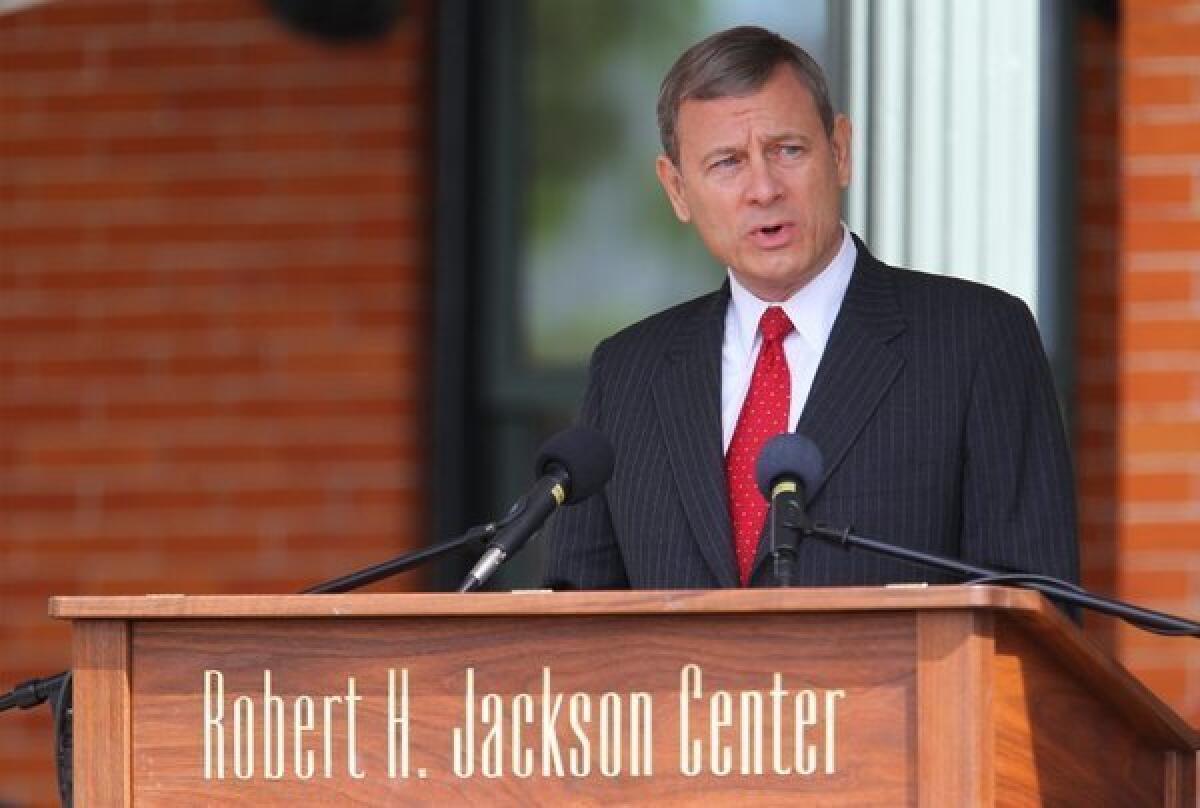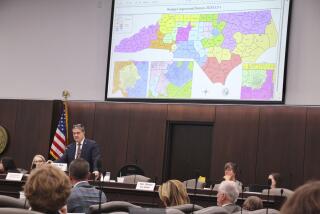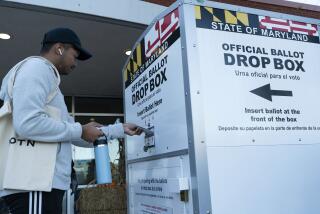Roberts to Congress: We warned you about voting rights

By a 5-4 vote, the Supreme Court on Tuesday invalidated a formula established by Congress to determine which states and localities, mostly in the South, must “pre-clear” changes in their election procedures with the Justice Department or a federal court in the District of Columbia.
Writing for the court, Chief Justice John G. Roberts Jr. essentially told Congress: “We warned you.” Roberts noted that in a 2009 opinion signed by eight justices, the court said: “Things have changed in the South. Voter turnout and registration rates now approach parity. Blatantly discriminatory evasions of federal decrees are rare. And minority candidates hold office at unprecedented levels.”
But Congress didn’t take the hint and revise the coverage formula, which is rooted in voting practices dating back to the 1960s and ‘70s. The court’s conservatives made good on the implied threat from 2009 and struck down the coverage formula, meaning that the Justice Department may no longer enforce it.
In an editorial in February, The Times warned against this result, arguing that the court should defer to Congress’ decision in 2006 to extend the coverage formula. We wrote:
“In the course of the 22 hearings it held before extending Section 5 in 2006, Congress adduced significant evidence of discriminatory practices in the covered jurisdictions, and reasonably concluded that problems were more common in those states and municipalities than elsewhere. Admittedly, as a federal appeals court noted in upholding the law, ‘the coverage formula’s fit is not perfect. But the fit was hardly perfect in 1965.’ Nevertheless, the law was upheld by the Supreme Court.
“Judicial second-guessing of Congress is especially inappropriate in the voting rights context. The Constitution explicitly empowers Congress to ‘enforce ... by appropriate legislation’ the 15th Amendment’s guarantee that the right to vote ‘shall not be denied or abridged by the United States or by any state on account of race, color, or previous condition of servitude,’ as well as the 14th Amendment’s guarantee of ‘equal protection of the laws.’ In extending Section 5 of the Voting Rights Act, Congress exercised its authority by huge majorities -- majorities that included representatives and senators from states subject to preclearance. There is no reason for the court to substitute its own judgment about how best to secure voting rights in the 21st century.”
Will Congress go back to the drawing board and map out a new system for which jurisdictions must ask for federal permission to change their rules? That would be a contentious process, which is why the House and Senate chose the politically easier path of extending the old formula.
ALSO:
Did Obama diss Catholic schools in Belfast?
To Paula Deen: It’s the attitude, not just the words
Might Justice Kennedy spring a surprise on DOMA?
More to Read
A cure for the common opinion
Get thought-provoking perspectives with our weekly newsletter.
You may occasionally receive promotional content from the Los Angeles Times.







